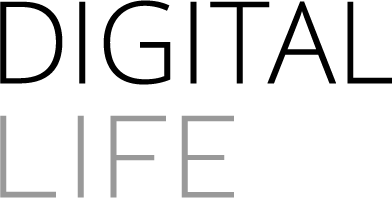Interview: 'Encouring vulnerable people of Amsterdam to adopt healthy behaviour'
31-05-2021
'Technology should serve people,' says Digital Life lecturer Somaya Ben Allouch. 'It is no more than a means to an end. You can now talk to devices, like to a human. When you use and design technology in the right way, you ensure that people want to make long-term use of it. In this way you support behavioral changes.'
Ben Allouch obtained her PhD in 2008 at the University of Twente on the development, acceptance and use of intelligent environmental technologies. In 2011 and 2012, she was a visiting researcher at Stanford University's Ambient Intelligence Research Lab. She now heads the Digital Life research group and is an endowed professor at the University of Amsterdam.
People in Motion
People in Movement (MiB) is one of the research themes to which Ben Allouch makes a major contribution. Three faculties work together within the theme: Exercise, Sports and Nutrition (FBSV), Digital Media & Creative Industry (FDMCI) and Health (FG). Each (sub) research starts from the triangle of nutrition, creative technology and sports & exercise.
Ben Allouch: 'Using this triangle, we support vulnerable Amsterdammers, so that they independently develop healthy and sustainable exercise and nutrition behaviour. Think of frail elderly, but also of overweight toddlers. If you omit one aspect from the triangle, you miss an important element of a person's daily routine. So less chance of success.'
She continues: 'Technology plays an important role these days because we simply don't have enough professionals to come to people's homes one-on-one, support and teach them. With technology you can reach a large group of people at once. When you design it in an inspiring and attractive way, you stimulate people and you also keep them motivated in the long term. For example, by using game elements (gamification). Technology increases the quality of care. Think of a nurse who uses smart glass (glasses with built-in technology) to let a colleague watch remotely during wound care.'
Matching needs
From her Digital Life professorship, Ben Allouch, together with students and fellow researchers, investigates the needs and requirements of a target group. Can a digital application provide support or is there another question? ‘Sometimes a robot or a wearable turns out to be a good tool. The other time a digital e-health platform. The context in which people find themselves plays an important role in this. We all include those kinds of elements in our research.'
She is currently working on two major projects within MiB: SO-NUTS and the development of a modular online platform. ‘SO-NUTS focuses on people who are retiring. Due to a changed daily rhythm, many people gain weight and lose muscle mass and condition. Our goal is to develop an effective, sustainable e-health intervention. Both focused on nutrition and exercise. We do this together with a large group of international scientists, including from Spain and Austria. My task is to co-research what people need in terms of technological support and what this should and can look like.'
The modular online platform is an online environment where researchers can easily place various modules. 'They don't have to develop a new basic application time and again. Users will soon be able to reach the platform via a computer or an app. They can look up information or find nutritional advice. Supportive training programs are also included. The modules should encourage visitors to exercise together and make healthy choices.'
The platform prototype should be ready next autumn. ‘Students from different study programs are involved. Support ICT staff in development, and students of Communication, Media and Design analyze which requirements the platform must meet. And students of health education are going to investigate what professionals need for two-way communication.'
A lot of insight
What has all that research yielded? Ben Allouch: 'More insight into what the practice looks like and what people need. For example, a recently completed project - VITAMIN - taught us that the elderly benefit enormously from a good form of blended care. We developed an online platform for them with exercise lessons. In addition, they were supervised by a student coach from the Nutrition and Dietetics course, who stimulated, motivated and helped them remember training moments. For each target group, you need to be very clear which elements are needed to make an intervention a success. The combination of technology and a human coach worked for this target group.'
'Good cooperation from the various disciplines, such as nutrition, creative technology and exercise, is very important. Fortunately, we are learning to speak each other's 'language' better and better. And because researchers and students participate in the various studies, they become aware of the importance of interdisciplinary research at an early stage. "Personally, Ben Allouch makes slightly different choices in the field of health. "I spend more time at my desk. And when we celebrate something with the team, healthy treats are put on the table earlier. Although I have since learned from my colleagues that anything is allowed, including the chocolate cake. As long as it stays in balance.'
/ This interview has also appeared on the website of Urban Vitality of the Amsterdam University of Applied Sciences.

